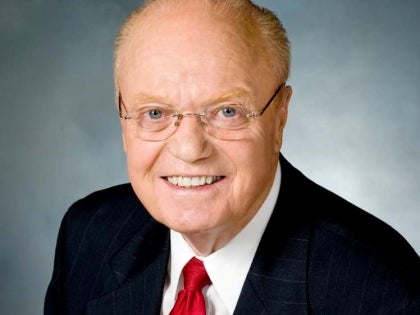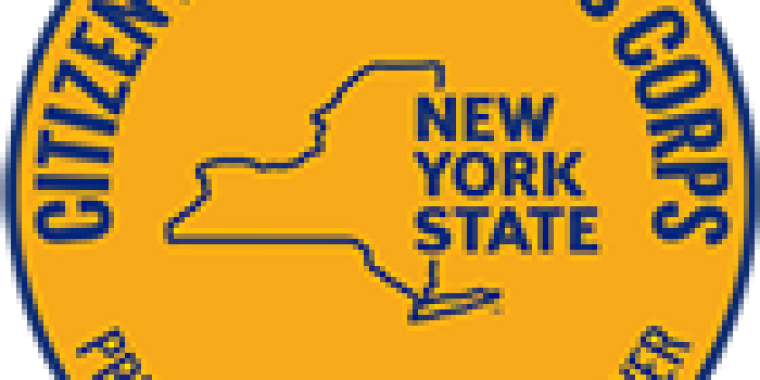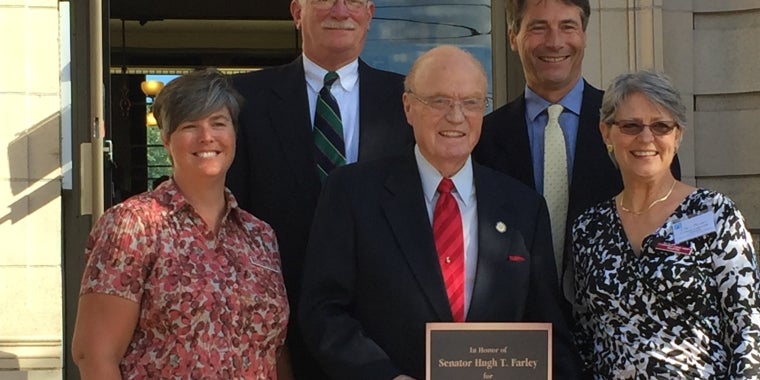
Senator Farley Gives Tips On Conserving Energy
As area residents begin to prepare for the colder months, State Senator Hugh T. Farley (R,C - Schenectady) offers suggestions on how to conserve energy and lower heating costs.
"Energy and heating homes are concerns to all of us," Senator Farley said. "As a result of a number of factors -- including recent natural disasters, crude oil shortages, and increased oil consumption throughout the world -- energy prices have skyrocketed. While the price of home heating fuels go up and down with national and international markets, it is best to be prepared by prepping your home for the winter months."
Senator Farley said about 35 percent of all electricity generated is used in our homes. This electricity use can be reduced by purchasing energy efficient appliances.
"According to my friends at the New York State Energy Research and Development Authority (NYSERDA), 60 percent of home energy goes to air conditioning and heating, while 16 percent is used for water heaters. Refrigerators use about 12 percent of your home's total energy," Senator Farley said.
When doing laundry, 90 percent of the energy used for washing clothes is for heating the water. Senator Farley suggests only washing and drying full loads and always rinse in cold water. If possible, hang laundry outdoors to dry. If using a dryer, remove the lint from the dryer screen and make sure the exhaust is not blocked in order to make the appliance more efficient. "Regularly cleaning the condenser coils in a refrigerator also makes this machine more efficient," Senator Farley said. "Also make sure the seals on the refrigerator, freezer and oven doors fit tightly."
When winterizing the home, Senator Farley offers the following suggestions:
* Have your furnace cleaned and checked annually. A dirty or plugged filter reduces the amount of heated air supplied to your home or apartment, increasing your heating cost.
* Set the thermostat no higher than 68 degrees Fahrenheit. Each degree you keep the thermostat set below 68 Fahrenheit can save you three to five percent of your heating cost.
* Make sure air registers are not obstructed by furniture, carpeting or drapes.
* Keep windows near the thermostat tightly closed.
* Open shades and drapes on sunny sides of your home or apartment during daytime hours. Close them at night.
* Keep windows tightly latched. Latching generally reduces air leakage through gaps around window sashes.
* For a temporary but quick and effective fix before winter, tape plastic film storm window kits to the inside of the windows. If left in place, these kits usually last up to three years.
* For the best insulation of all, wear warm clothes.
* Keep waterbeds covered with a heavy comforter or blankets. The heater in an uncovered waterbed can consume 30 percent more electricity than the heater in a covered bed.
* Keep the fireplace damper closed unless in use. Close the damper as soon as you are certain the fire is completely out.
* If using a portable space heater, turn down the central heating thermostat to offset the energy being consumed by the space heater.
* Never operate kerosene or propane heaters inside without proper ventilation. Never burn charcoal in the house or garage.
* Be sure that your attic and basement are properly insulated which increases energy efficiency enormously.
* Install a programmable thermostat and program it to cool the house when people are sleeping or the house is empty.
Senator Farley reminds those consumers who are having problems paying their utility bills that they do have some protections under the Home Energy Fair Practices Act.
"If your utility is aware that you and all adults living with you are 62 years of age or older, blind or disabled, it must make special attempts to contact you by phone or in person at least three days before a scheduled service shut off in order to help you keep your utility service on," Senator Farley said. "During the cold weather period of November 1st through April 15th, your utility has to make special efforts to determine if disconnection of your heat-related service will cause a problem to your health and safety."
Senator Farley said if a person's service is, or is about to be, disconnected due to non-payment, the consumer can call the New York State Public Service Commission's Consumer Services Division toll-free at (800) 342-3355.
Senator Farley also reminds constituents of the federally-funded Weatherization Assistance Program. Services under this program are for qualifying people with low-incomes, particularly elderly adults, handicapped people, and families with young children. In New York, the program provides services to people with household incomes below 60 percent of the State Median Income, who reside in either single-family or multi-family buildings. For more information on this program, call the State Division of Housing and Community Renewal toll-free at (866) 275-3427.



